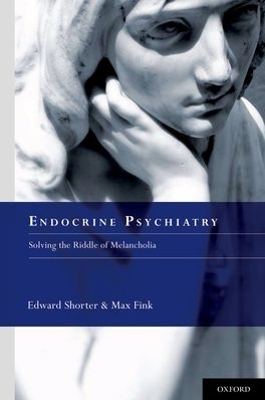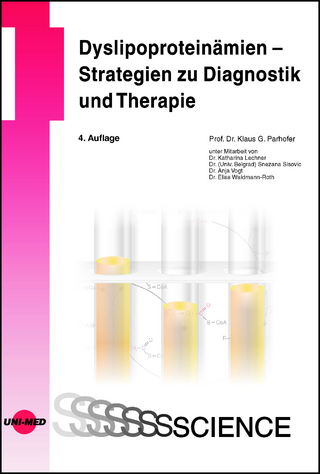
Endocrine Psychiatry
Solving the Riddle of Melancholia
Seiten
2010
Oxford University Press Inc (Verlag)
978-0-19-973746-8 (ISBN)
Oxford University Press Inc (Verlag)
978-0-19-973746-8 (ISBN)
Melancholia, a severe form of depression, has stumped generations of clinicians. In the mid twentieth century it was connected to dysfunctions between the brain and the endocrine system. The authors trace the rise and fall of endocrine psychiatry from 1900 to the present in an effort to solve the mystery of melancholia.
The riddle of melancholia has stumped generations of doctors. It is a serious depressive illness that often leads to suicide and premature death. The disease's link to biology has been intensively studied. Unlike almost any other psychiatric disorder, melancholia sufferers have abnormal endocrine functions. Tests capable of separating melancholia from other mood disorders were useful discoveries, but these tests fell into disuse as psychiatrists lost interest in biology and medicine. In the nineteenth century, theories about the role of endocrine organs encouraged endocrine treatments that loomed prominently in practice. This interest faded in the 1930s but was revived by the discovery of the adrenal hormone cortisol and descriptions of its abnormal functioning in melancholic and psychotic depressed patients. New endocrine tests were devised to plumb the secrets of mood disorders. Two colorful individuals, Bernard Carroll and Edward Sachar, led this revival and for a time in the 1960s and 1970s intensive research interest established connections between hormone dysfunctions and behavior. In the 1980s, psychiatrists lost interest in hormonal approaches largely because they did not correlate with the arbitrary classification of mood disorders. Today the relation between endocrines and behavior have been disregarded.
This history traces the enthusiasm of biological efforts to solve the mystery of melancholia and their fall. Using vibrant language accessible to family care practitioners, psychiatrists and interested lay readers, the authors propose that a useful, a potentially live-saving connection between medicine and psychiatry, has been lost.
The riddle of melancholia has stumped generations of doctors. It is a serious depressive illness that often leads to suicide and premature death. The disease's link to biology has been intensively studied. Unlike almost any other psychiatric disorder, melancholia sufferers have abnormal endocrine functions. Tests capable of separating melancholia from other mood disorders were useful discoveries, but these tests fell into disuse as psychiatrists lost interest in biology and medicine. In the nineteenth century, theories about the role of endocrine organs encouraged endocrine treatments that loomed prominently in practice. This interest faded in the 1930s but was revived by the discovery of the adrenal hormone cortisol and descriptions of its abnormal functioning in melancholic and psychotic depressed patients. New endocrine tests were devised to plumb the secrets of mood disorders. Two colorful individuals, Bernard Carroll and Edward Sachar, led this revival and for a time in the 1960s and 1970s intensive research interest established connections between hormone dysfunctions and behavior. In the 1980s, psychiatrists lost interest in hormonal approaches largely because they did not correlate with the arbitrary classification of mood disorders. Today the relation between endocrines and behavior have been disregarded.
This history traces the enthusiasm of biological efforts to solve the mystery of melancholia and their fall. Using vibrant language accessible to family care practitioners, psychiatrists and interested lay readers, the authors propose that a useful, a potentially live-saving connection between medicine and psychiatry, has been lost.
Edward Shorter, PhD Professor of the History of Medicine Hannah Chair in the History of Medicine Professor of Psychiatry Faculty of MedicineUniversity of Toronto Max Fink, MD Professor of Psychiatry and Neurology Emeritus School of Medicine State University of New York at Stony Brook New York, NY
Table of contents
Preface
Ch 1 Introduction
Ch 2 Early Days
Ch 3 Cortisol
Ch 4 Barney Carroll and Ed Sachar
Ch 5 The DST in Use
Ch 6 Trouble
Ch 7 "The most exciting development in the endocrine study of depression"
Ch 8 The Fall of Endocrine Psychiatry
Ch 9 Afterword, by Max Fink
| Erscheint lt. Verlag | 27.5.2010 |
|---|---|
| Verlagsort | New York |
| Sprache | englisch |
| Maße | 236 x 155 mm |
| Gewicht | 476 g |
| Themenwelt | Geisteswissenschaften ► Psychologie ► Klinische Psychologie |
| Medizin / Pharmazie ► Gesundheitswesen | |
| Medizinische Fachgebiete ► Innere Medizin ► Endokrinologie | |
| Medizin / Pharmazie ► Medizinische Fachgebiete ► Psychiatrie / Psychotherapie | |
| ISBN-10 | 0-19-973746-0 / 0199737460 |
| ISBN-13 | 978-0-19-973746-8 / 9780199737468 |
| Zustand | Neuware |
| Haben Sie eine Frage zum Produkt? |
Mehr entdecken
aus dem Bereich
aus dem Bereich
Buch | Hardcover (2023)
UNI-MED (Verlag)
39,80 €


